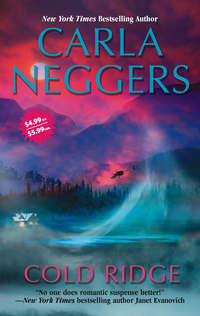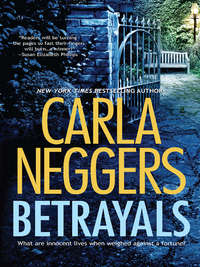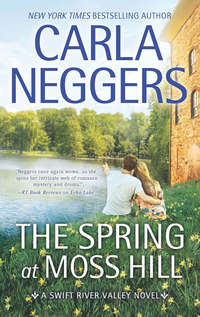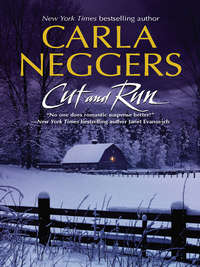
Полная версия
The Whisper
“Ah, so you have been keeping tabs on me.”
He glanced up at her. “Always.”
She grinned at him. “You could at least try to look disappointed. We’re friends, right?”
He let the thick rope go slack. “You’re a dangerous friend to have, Sophie.”
With the resurgent sunshine, she unzipped her jacket. “Yeah, well, you weren’t the one who spent a frightening night in an Irish cave.”
“Oh, no—no, I was the one who didn’t talk you out of spending a night alone on an island no bigger than my boat. I was the one who left you there.”
“The island is a lot bigger than your boat. Otherwise,” she added, trying to sound lighthearted, “you’d have found me faster than you did.”
“I was lucky to find you at all, never mind before you took your last breath.” He gripped the rope tight again but made no move to untie it and get out of there. Still, he regarded her with open suspicion. “I’m not taking you back there. Don’t ask me to.”
“I’m not asking. That’s not why I’m here. I don’t want to go back.” She fought off another involuntary shudder. “Not yet, anyway. Maybe one day.”
Or maybe not ever, but she wasn’t telling Tim that. Whether she was being stubborn or just had her pride, she didn’t want him to think she was afraid to return to the tiny island off the Iveragh coast where she’d encountered…she wasn’t sure what. She knew she’d almost died there.
“Do you still have nightmares?” he asked, less combative.
“Not as many. Do you?”
He grunted. “I never did have nightmares, but as you say, I wasn’t the one—”
“That’s right, you weren’t, and I’m glad of that.”
“I hear you finished your dissertation.”
She nodded. “It’s been signed, sealed, delivered, defended and approved.”
“So it’s Dr. Malone now, is it?” He seemed more relaxed, although still wary. “What will you be doing in Boston?”
“Mostly looking for a full-time job. I have a few things lined up that’ll help pay the rent in the meantime.”
Tim’s skepticism was almost palpable. “What else?” he asked.
Sophie looked out at the water, dark blue under the clearing early-afternoon sky. Tim O’Donovan was no fool. “Did you know a Boston police detective’s staying out on the Beara?”
“Sophie.” Tim gave a resigned sigh. “You went to see Keira Sullivan’s ruin, didn’t you?”
“It makes sense. I’m an archaeologist. I’ve crawled through literally hundreds of ruins over the past ten years.”
“This isn’t just another ruin. It’s where that Yank serial killer—” He stopped abruptly. “Ah, no. Sophie. Sophie, Sophie. You’re not thinking he was responsible for what happened to you. Don’t tell me that.”
“Okay, I won’t.”
“Sophie.”
“It doesn’t matter what I think. He’s in jail. He can’t hurt me or anyone else.”
“I never should have told you that story,” Tim said quietly.
Sophie understood. Over Guinness and Irish music one evening a year ago, he had transfixed her with a tale he’d heard from a long-dead uncle who had served as a priest in a small village on the Iveragh Peninsula across Kenmare Bay. A coastal monastery, Viking raids, a secret hoard of pagan Celtic artifacts—how could she have resisted? For centuries—at least according to Tim—the story had been closely held by the priests in the village. It was a tangle of fancy, history, mythology and tradition—with, she’d suspected, a large dose of Tim’s Guinness-buzzed Irish blarney.
“I was procrastinating,” she said to him now. “That’s why I started going out there. I was mentally exhausted, and I just wanted to go on a lark.”
“A shopping spree in Dublin wouldn’t have done the trick?”
“I never expected to find anything, or end up in a dark cave with spooky stuff happening around me. It wasn’t a dream, Tim. It wasn’t a hallucination.”
“You were knocked on the head.”
She sighed. She didn’t remember how she’d been rendered unconscious—whether she’d accidentally hit her head scrambling to hide, or whether whoever had been on the island with her had smacked her with a rock. When she’d come to, it was pitch dark, cold and silent in the cave.
Tim unknotted the rope automatically, as he had since he’d been a boy. There were seven O’Donovans. He was the third eldest. “My mother prays for you every night,” he said. “She’s afraid it was black magic at work, or dark fairies—nothing of this world, that’s for certain.”
“Thank your mother for me.”
“I try not to mention your name to her. I should never have told her what happened. She’s the only one who knows—”
“It’s okay, Tim.”
They’d set off a year ago on a warm, clear late-September morning—Sophie remembered how calm the bay was, how excited she was. She’d had her iPhone and everything she needed for less than twenty-four hours on her own. Tim had returned to pick her up the following morning. When she wasn’t at their rendezvous point, he’d set out on foot to look for her. At first he’d assumed she’d got herself sidetracked and was annoyed with her for delaying him. Then he’d found her backpack in a crevice near the cave. She remembered the panic in his voice when she’d heard him calling her, and the relief she’d felt knowing he was there and she would survive her ordeal.
Of course, he’d wanted to kill her himself when she’d crawled out of the cave.
He’d called the guards. By then, there was nothing for them to find. They believed, in spite of Sophie’s academic credentials, that what she claimed to have seen and heard was the product of a concussion, dehydration, adrenaline, a touch of hypothermia and no small amount of imagination. They’d made it clear they thought both she and Tim were nuts. She for going out there, no matter how experienced and well prepared, he for letting her talk him into leaving her alone overnight on the thimble of an island.
“How long are you going to stay mad at me?” Sophie asked Tim now.
“Until I’m explaining myself before St. Peter, should he have me.”
She smiled. “He’ll have you because the devil won’t.”
He grinned back at her, a glint of humor in his green eyes. “True enough. Don’t think I don’t know why you’re here, Sophie Malone. You want to know if anyone’s asked me about you, and the answer is no.”
“You’re sure?”
“Oh, trust me, I’d remember.”
“Keira Sullivan is romantically involved with an FBI agent—Simon Cahill—and her uncle’s a Boston homicide detective.”
“Bob O’Reilly,” Tim said. “Yes, I know.”
Sophie wasn’t surprised. “They’ve both been out here this summer. There’s the Boston detective out on the Beara now. Scoop Wisdom.”
“None of them have looked me up. I fish, Sophie, and I play a little music. I stay away from trouble.”
“I don’t want to cause you any more problems.”
Tim stood up straight and looked out at the sparkling harbor. “I believe you, Sophie. I do. I don’t know how you hit your head, but I believe you found Celtic treasure. I believe you heard whispers, and I believe you saw hawthorn branches dipped in blood.” He turned to her, as serious as she’d ever seen him. “I wish I could tell you who or what it was in that cave with you.”
“I wish you could, too, Tim.”
“They say the woman who hid the treasure died on the island.”
If there ever were such a woman. No historical record existed of her that Sophie had been able to locate. Tim’s story told of a woman fleeing to the island with her pagan treasure to escape Viking raids in the eighth century. Then again, he’d said, maybe it had been English raids in the seventeenth century, or maybe to trade for food for the starving in the famine years.
Hard facts were a little tough to pin down.
Sophie had no intention of arguing Irish tales with an Irishman, especially one who was still irritated with her for putting him through hell. She shivered in a sudden gust of wind, but she knew it wasn’t the cold she was feeling. It was the lingering effects of that night a year ago.
Tim put a big hand on her shoulder. “Let go of what happened to you.” His voice was quiet now. “Get on with your life.”
“I am. Don’t worry about me, okay?”
“Worry about you?” He laughed, hugging her to him. “I want to drown you in the bay. Dragging me to that barren rock. No sign of you when I came after you. There I was with you gone and nothing but the wind, the waves, the crying birds. I get chilled to the bone thinking about it.”
Sophie couldn’t help but smile. Tim was dramatic. She glanced up at the brightening sky, no hint left of the rainbow. “I wonder if it was sheep’s blood on the branches I saw.”
Tim was thoughtful. “It was sheep’s blood at the Beara ruin.”
“Yes, but Jay Augustine left that blood for Keira Sullivan to find, assuming she lived through the night. The blood and branches I saw disappeared. If I’d managed to get a few drops on me, it would have corroborated my story. The guards could have tested it—”
“Don’t, Sophie. What’s done is done.”
She looked down at Tim’s battered boat, bobbing in the rising tide. “We could put all this out of our minds for a while and go sightseeing for seals and puffins.”
Tim obviously knew she wasn’t serious. “You’re playing with fire, Sophie,” he said heavily. “You know you are.”
“The guards must have a report in their files on what happened a year ago, and obviously they know about Keira’s experience on the Beara. They haven’t come to reinterview me. I just keep wondering if I missed something….” She didn’t finish and instead shook off her questions and smiled at Tim. “Stay in touch, okay?”
“Sophie—”
“All will be well.”
“Yes, it will be, please God,” he said, watching her as she headed back down the pier.
“Oh, and Tim,” she called cheerfully, turning back to him, “if you want to get anywhere with my sister, trim your beard and bone up on your Yeats.”
He jumped into his boat, as comfortable at sea as he was on land. “‘Tread softly because you tread on my dreams,’” he recited, crossing his hands over his heart. “‘A pity beyond all telling is hid in the heart of love.’”
Sophie laughed, enjoying the moment. She saw he was laughing now, too, and she felt better as she walked to her car.
After their look around the island produced nothing—not even a drop of blood on the gray rock much less a bit of Celtic gold—the guards had asked her and Tim not to discuss the incident in the cave with anyone else, in order to avoid a rush of treasure hunters. She’d tried to put her experience behind her, even to the point of wondering if she, too, should just blame a concussion, dehydration, fatigue, isolation, overwork and imagination—if not ghosts and fairies, which, she suspected, deep down Tim believed were responsible for her ordeal.
Then last week, she’d pulled her head up from her work and had lunch with Colm Dermott, back in Cork on behalf of the folklore conference, and he’d told her about the violence in Boston over the summer. She’d been vaguely aware that Jay Augustine, a fine art and antiques dealer who had turned out to be a serial killer, had latched onto Keira’s Irish story in June and finally was arrested, after trying to kill Keira and her mother. His violence and fascination with the devil and evil had inspired Norman Estabrook, a corrupt, ruthless billionaire, to act on his own violent impulses, which had led to the bomb blast in late August that had injured Scoop Wisdom and culminated in Estabrook’s death on the coast of Maine.
Sophie couldn’t shake the similarities of Keira’s experience on the Beara to her own on the island. She had to know. Had Jay Augustine followed her a year ago and left her for dead? Had he made off with the artifacts—whatever their origin or authenticity—she’d seen in the cave? Without proper examination, she couldn’t say for sure what they were, but she had a solid recollection of the pieces—a spun-bronze cauldron, gold brooches, torcs and bracelets, glass beads and bangles. She hadn’t imagined them, even if Irish and American authorities had already reviewed her account of her night in the cave and decided it wasn’t worth pursuing further.
She climbed into her car. She was tempted to head to the village and settle in her favorite pub for the rest of the day, but instead she got out her iPhone and dialed her brother Damian, an FBI agent in Washington, D.C.
“Hey, Damian,” she said. “I was just watching an Irish rainbow and thought I’d call. Taryn’s on her way, and Mom and Dad will be here in time for dinner and Irish music. We’ll miss you.”
“I’ll be in Ireland in two weeks.”
“I’ll be in Boston then. I leave tomorrow. It’s not as spur-of-the-moment as it sounds. I’m staying in Taryn’s apartment on Beacon Hill. Doesn’t that sound cozy?”
“What’s going on, Sophie?”
“They teach you that in FBI school—how to turn someone saying ‘cozy’ into something suspicious? Never mind. I was just out on the Beara Peninsula where that serial killer struck. Would you know if he was involved in smuggling and selling stolen artifacts?”
Silence.
Sophie knew she’d struck a nerve but pretended to be oblivious. “Damian? Are you there? Are we still connected?”
“We’re still connected. Any kind of stolen artifacts in mind?”
“Pagan Celtic.”
“Why?”
“Because it’s my area of expertise. Keira Sullivan’s stone angel was Early Medieval Celtic from the sounds of it. I’m just curious if this Augustine character was into Celtic works in general.”
“He was interested in killing people, Sophie.”
She looked out at the pier, tourists gathering for a boat tour of the coast. “I get your point, Damian, but you know what I mean.”
“You’re the archaeologist. I’m the FBI agent. You tell me. Do you know anything about Celtic artifacts showing up on the black market?”
This time, she was the one who didn’t answer.
“Sophie?”
“My battery’s dying. I’ll call you later.”
She disconnected and dropped her phone back in her jacket pocket. As if putting herself on the radar of one law enforcement officer today wasn’t good enough, she’d had to call her FBI agent brother. She started her car and let herself off the hook. Calling Damian made sense. He was assigned to FBI headquarters in Washington. He could find out just about anything.
She wondered if she’d have a better chance if she told him about her experience last year.
“Probably not,” she whispered as she drove back down the quiet street. The Irish authorities already knew about the incident. If she told Damian, he’d look into it, and she didn’t want to send him and the FBI off on some wild-goose chase if she were totally off target.
More to the point, he’d tell their parents, and why get them all worked up over what could be nothing?
She had a few hours before they arrived. Her sister would get there sooner. Sophie decided to forget missing Celtic artifacts and jailed serial killers for the moment and head to the house and cook, clean and do what she could to make her life look as if her family didn’t need to worry about her.
3
Beara Peninsula, Southwest Ireland
A wild hurling match was on the small television in the sole village pub. Scoop sat on a stool at the five-foot polished wood bar. He’d had soup and brown bread, then settled in with a Guinness during an afternoon shower. The peat fire was lit. The bartender’s brown-and-white springer spaniel was asleep on the hearth.
Life could be worse.
“I miss my garden,” he said to Eddie O’Shea, the wiry, energetic barman. In late June, Eddie had helped identify Jay Augustine as the man responsible for the sheep’s blood up at Keira’s ruin.
Eddie busied himself at the sink behind the bar. “Time to go home, is it?”
“Past time, probably. I might have some butternut squash I can save. The firefighters and paramedics trampled the hell out of my tomatoes and cauliflower. Of course,” Scoop added with a grin, “they also saved my sorry life.”
“And you saved Bob’s daughter,” Eddie said. He’d met Bob O’Reilly on Bob’s trip to Ireland earlier in the summer. Bob’d had to see Keira’s ruin, too. “A few tomatoes are a small price, don’t you think?”
“No price at all.” Scoop stared into his Guinness, but he was back in Boston on that hot summer afternoon, minutes before the bomb went off. Fiona O’Reilly, Bob’s nineteen-year-old daughter, had dropped by to see her father. She was a harp player, as smart and as pretty as her cousin Keira and as stubborn as her father. “This wasn’t Fiona’s fight. She was an innocent bystander.”
“Was it your fight?”
“Doesn’t matter. It’s my fight now.” He thought of the special investigation back in Boston. Had his bomber been staring him in the face? Had he missed something? “I want to know who planted that bomb, Eddie. It could have been anyone. The meter-reader, the plumber, the mailman, a cab driver. Pigeons. Who knows?”
Eddie reached for Scoop’s empty glass. “You go after police officers suspected of wrongdoing. Do you suspect it’s a cop you’re after?”
Scoop didn’t respond, and Eddie didn’t push him for an answer. Few of the handful of people in the pub seemed to be paying attention to the game on the television. Most were locals, but Scoop picked out a young couple who undoubtedly had come in on the bicycles he’d seen outside the pub. He could hear the pair chatting in German. They looked happy and carefree, but probably they weren’t. There’d be issues back home—jobs, relatives, health issues. Something.
No one’s life was simple.
Definitely time to go home. Maybe being back in Boston would jog his memory about the minutes, hours and even days before the bomb blast. After three weeks recuperating on the other side of the Atlantic, he hadn’t produced a face, a name, an incident—a shred of a memory that would take him from the shadows of uncertainty to the identity of the person who had assembled the bomb and delivered it to the home of three detectives.
He’d have to face finding temporary housing when he returned to Boston. The triple-decker was badly burned and under repair. Bob O’Reilly was from Southie and knew carpenters, electricians and plumbers and was overseeing the work, but it’d be a while before any of them could move back in.
Scoop eased off the stool, left enough euros to cover the tab and headed back outside. The village was quiet, the sun shining again, glistening on the rain-soaked sidewalk. Brightly painted houses lined both sides of the street. He half expected Sophie Malone to walk up from the harbor.
It was eerie, that certainty that he hadn’t seen the last of her.
He shook off his strange mood and turned onto a narrow lane that ran parallel to the bay, at the foot of the steep hills that formed the spine of the peninsula. A half-dozen brown cows meandered down the middle of the lane toward him. City cop though he was, Scoop had grown up in the country and didn’t mind cows. He stepped close to an ancient stone wall and let them pass. As he continued down the lane, he tried to pay attention to the details around him and not get lost in his own thoughts. He noticed a half-dozen sheep in a pen and heard more sheep baaing up in the hills.
He came to the traditional stone cottage Keira had rented back in June and let him use the past two weeks. She’d come to Ireland to paint, walk, research her old story and delve into her Irish roots, but her summer hadn’t worked out the way she’d meant it to. The cottage was just the sort of place he’d have expected her to stay. Getting blown against his compost bin and almost bleeding to death had helped him realize he could have fallen in love with her, but being here in Ireland had convinced him that he hadn’t—that it wasn’t meant to be.
Keira was meant for Simon Cahill, the bull of an FBI agent who’d come here to search for her when she’d gone missing in the Irish hills.
It’d been a hell of a summer, Scoop thought.
A massive rosebush dominated the otherwise prosaic front yard, its pink blossoms perking up in the sunshine. He noticed the kitchen door was partially open and immediately tensed, although more out of force of habit than any real alarm. He wasn’t expecting company, and his rental car was the only vehicle in the gravel driveway. Most likely he simply hadn’t shut the door properly when he’d left for the ruin that morning.
Wrong on all accounts, he observed as a man with medium brown hair eyed him from the small pine table where Keira had left an array of art supplies. He had several days’ growth of beard and looked exhausted, if also intense and alert. He wore canvas pants and a lightweight leather jacket. “I never could draw worth a bloody damn.” He spoke with a British accent. He leaned back in his chair and held up a sheet of paper with a crude pencil drawing. “What do you think?”
“Is it a sheep?”
“There you go. No. It’s an Irish wolfhound.”
“I was just kidding. I knew it was a dog.” Scoop pulled off his jacket and set his backpack on the floor. “Myles Fletcher, right?”
“Right you are,” Fletcher said matter-of-factly, setting his sketch back on the table. “Did you ever want to be an artist when you were a boy, Detective Wisdom?”
“Nope. Always wanted to be a cop. I bet you always wanted to be a spy.”
The Brit grinned. “Simon Cahill warned me you were no-nonsense.”
“You’re SAS and British SIS. Secret Intelligence Service—MI6. James Bond’s outfit.”
“All right, then.” Fletcher yawned, his gray eyes red-rimmed. Wherever he’d come from, he hadn’t had much sleep. “You’ll want to know why I’m here. I’ll get straight to the point. I have information that a Boston police officer was involved in making and planting the explosive device that gave you those scars.”
Scoop remained on his feet, silent, still.
“This police officer worked with the men who engineered the kidnapping of Abigail Browning. Smart businessman that he was, Norman Estabrook delegated the job. He wanted Abigail. He didn’t care how he got her.”
Scoop leaned against a counter. During Abigail’s three-day ordeal, he had been in the hospital, out of commission. Fletcher’s role in helping her wasn’t common knowledge even in the police department, but Scoop had managed to piece together various tidbits and drag more out of his friends and colleagues in law enforcement. The Brit had latched onto a connection between drug traffickers and a terrorist cell and following their trail had taken him to American billionaire Norman Estabrook. For at least two years, no one, including Fletcher’s own people back in London, knew Fletcher was even alive.
In the meantime, the FBI was on to Estabrook’s association with the drug traffickers and had him under surveillance in the form of Simon Cahill. They arrested the hedge-fund billionaire in June. By late August, he was free again. He disappeared, and Myles Fletcher, still deep undercover, still on the trail of his terrorists, found himself in the middle of the angry, entitled billionaire’s elaborate scheme to exact revenge on the FBI for his downfall. Estabrook’s scheme included setting off a bomb as a diversion to kidnap Abigail, FBI Director John March’s daughter, a Boston homicide detective and Scoop’s friend.
Caught between a rock and a hard place, Fletcher had done what he could to help Abigail. Once she was safe, he took off again.
Now he was sitting in an Irish cottage kitchen drawing pictures of dogs.
What a day, Scoop thought. First Sophie Malone, now Myles Fletcher.
A coincidence? Not a chance. “You wouldn’t be here if the main thrust of your mission wasn’t completed,” Scoop said.
Fletcher shrugged. “I suspect your bad cop is someone you know,” he said. “Someone you wouldn’t think twice to have over for a pint or two.”
“Any names?”
“No. Sorry.” Fletcher stretched out his legs, looking, if possible, even more tired. “I’ve done no research on my own. My focus has been on other matters. This is your fight. You were injured in the blast, and you work in internal affairs. Even if you don’t know this particular officer yourself, you’ll have instincts about those who go bad.”









